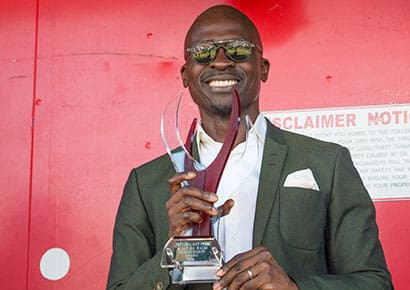Praise for positive steps on LGBTI issues in SA’s human rights report card

Home Affairs Minister Malusi Gigaba
In its annual World Report 2017, Human Rights Watch has found generally positive developments when it comes to LGBTI rights in South Africa.
Looking back at the past year, the New York based rights watchdog highlighted progress by the Department of Justice and Constitutional Development.
It said that the department “has taken significant steps to improve coordination between government and civil society in combatting violence (including rape and murder) against lesbians and transgender men”.
While not mentioned in the report, the department also made headway by finally releasing a draft bill that seeks to legally recognise hate crimes and to criminalise hate speech. The deadline for public comment on the bill is the end of January.
(Note: Despite these moves, there appeared to be no let up in attacks, some deadly, against members of the LGBTI community in 2016. Local LGBTI groups also expressed their frustration with working with the department and with the continued inefficiency and incompetence within the criminal justice system).
Human Rights Watch further praised Home Affairs Minister Malusi Gigaba for banning US pastor Steven Anderson and members of his church from entering South Africa “because they promote hate speech and advocate social violence”.
The group expressed concern, however, that, in July, South Africa controversially abstained in a critical UN Human Rights Council vote to establish an international LGBTI rights watchdog, thereby going against its “strong constitutional protections and domestic laws around sexual orientation and gender identity”.
Human Rights Watch noted that following an outcry, the country later changed its stance and went on to vote in favour of the LGBTI watchdog (in opposition to most other African countries).
Despite these positives, South Africa was criticised by the organisation in a number of other areas. These included:
- The failure to ensure that around half a million children with disabilities have access to basic education.
- The failure to develop a national strategy to combat the high rate of violence against women and the continued underreporting of rape.
- Not making public the recommendations of the enquiry into suspended National Police Commissioner Victoriah Phiyega’s fitness to hold office.
- The failure to hold accountable those responsible for a spate of xenophobic attacks in 2015.
- The government’s decision to withdraw from the International Criminal Court (ICC) following its failure to arrest Sudanese President Omar al-Bashir when he visited the country.
- Not voting in favour of a UN Human Rights Council resolution on the protection of human rights on the internet.
In a general overview of the state of human rights around the globe, Human Rights Watch warned that “the rise of populist leaders in the United States and Europe poses a dangerous threat to basic rights protections while encouraging abuse by autocrats around the world”.
Leave a Reply